Justice
OPINION: Bauchi Ex-AG’s Victory: Kudos to the Judiciary

By Mohammed Musa
In a stunning rebuke of executive overreach, the Federal High Court sitting in Bauchi has restored hope to millions of Nigerians who believe in the power of justice. On July 1, 2025, Hon. Justice Aminu Garba ordered the Bauchi State Government to pay N100 million in damages and publicly apologise to Dr. Sa’idu Abubakar, the former Accountant General, over his illegal arrest, detention, and humiliation.
It wasn’t just a win — it was a landmark moment. A declaration that power cannot always bully truth. And that the Federal courts, when they stand firm, are still the last line of defence for the oppressed.
Dr. Abubakar’s story is sadly familiar. He was a respected technocrat serving the people of Bauchi — until politics got in the way.
He was suddenly removed from office, arrested without cause, detained like a common criminal, and subjected to intense investigations. They searched for evidence, they found nothing. No missing funds, no fraud, no misconduct.
Just silence. Then shame. Then freedom.
What makes this case different is what followed. Dr. Abubakar didn’t disappear into the shadows. He fought back — with the law on his side. And the Federal court agreed: his rights were violated, his dignity trampled, and justice demanded compensation.
Now a Permanent Secretary in the Bauchi civil service, Dr. Abubakar’s name has been cleared not just administratively, but historically. The judgment wasn’t just about him. It was about every innocent Nigerian who has been dragged, detained, disgraced — then dumped.
The N100 million compensation isn’t just damages. It’s a statement. A message. That no matter how powerful your persecutors are, the Constitution still matters, the gavel can still thunder in favour of the innocent.
This case is more than a personal vindication. It’s a legal and moral triumph that proves the federal judiciary can still roar when pushed. In an era where many institutions bend under political pressure, the Federal court in Bauchi stood tall.
Hon. Justice Aminu Garba deserves national commendation. His ruling sent a clear signal: rights are sacred, and impunity has a price. He did not cower before the state, he sided with the truth.
Let’s be clear: this wasn’t just a technical judgment. It was justice served with courage—a judgment that should be studied in law schools and echoed in civil rights circles.
Too often in Nigeria, public officials are hounded for refusing to play dirty. Lives are ruined over baseless allegations. Files are opened to intimidate. Media trials are launched to destroy, but in this case, the federal judiciary pushed back hard.
Dr. Abubakar’s case is a textbook example of how state power can be misused — and how the law, when allowed, can reset the balance.
For too long, impunity has reigned. Innocent people have been jailed without trial, forced out of office without process, and painted as guilty without proof. This judgment cracks that wall. It says: enough.
And it does more. It gives hope. It reminds us that Federal courts aren’t just ceremonial chambers — they’re the guardians of our freedoms. That even in a country battered by corruption and strongman politics, justice can still stand up, speak out, and swing the hammer in the right direction.
Dr. Abubakar’s courage must not go unnoticed. It takes guts to fight the system — especially when the system wants you erased. His resistance gave the Federal judiciary a chance to shine. And shine it did.
This is not the time to move on quietly. It’s the time to reflect and amplify. If we ignore victories like this, we embolden the next abuser of power. If we celebrate them, we tell every Nigerian: you have rights, and you can win.
So yes — kudos to the Federal judiciary for standing firm, for choosing principle over politics, for reminding us all that justice is not dead in Nigeria.
Kudos to Dr. Sa’idu Abubakar for refusing to be broken, for trusting the law, and for proving that even in Nigeria, truth still has power — and power can still be held accountable.
It would be recalled that there was an earlier judgement by Justice Kunaza N. Hamidu of Bauchi State High Court No. 2, which still favored Dr. Sa’idu Abubakar
Let this judgment echo from courtrooms to classrooms, from civil servants to civil society because justice won and history will remember.
Justice
Dan Bello Visits Kuje Prison, Demands Justice for Haruna Abbas Detained 13 Years Without Trial
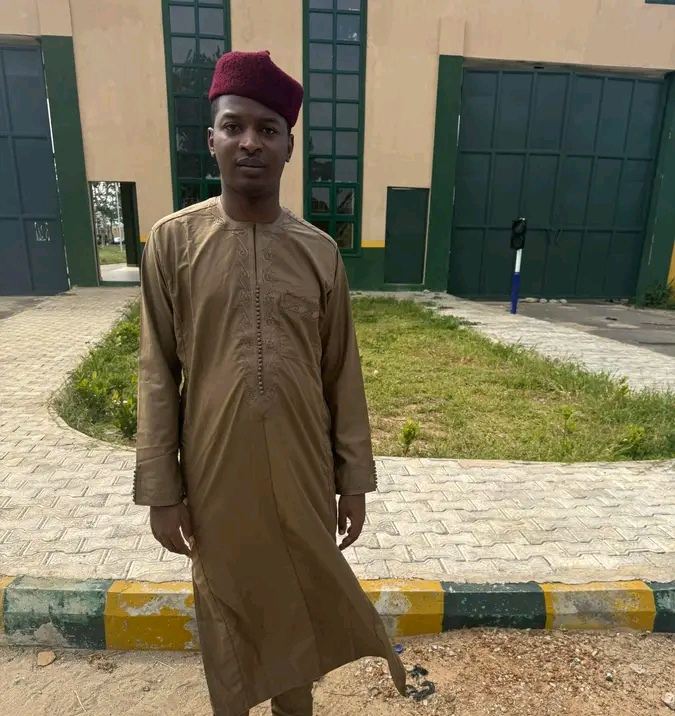
By Our Correspondent
Nigerian activist and advocate for social justice, Bello Habib Galadanchi, popularly known as Dan Bello, has raised fresh concerns over the prolonged detention of Haruna Abbas, who has spent 13 years in prison without trial.
Dan Bello disclosed that he recently visited Kuje Correctional Facility in Abuja, where he met with Abbas, a man who has languished in custody since his arrest, with no formal conviction or judgment delivered against him.
“I visited Haruna Abbas at Kuje Prison in continuation of our advocacy for justice. He has been behind bars for 13 years without trial. His two daughters died while he was still in prison—without being convicted,” Dan Bello said.
The emotional case of Haruna Abbas has drawn growing public outrage, with many Nigerians calling for urgent judicial reforms to address cases of unlawful and prolonged detentions across the country.
A Father’s Pain, A Nation’s Shame
Haruna Abbas’s story is particularly heartbreaking. According to Dan Bello, during his time in detention, Abbas lost two of his daughters—without the chance to see or mourn them properly. His prolonged incarceration without judgment, despite being in custody for over a decade, has become a symbol of systemic failure in Nigeria’s justice system.
“This is not just about Haruna Abbas. It’s about all the forgotten Nigerians held without trial. It’s about justice, fairness, and dignity,” Dan Bello added.
JusticeForHarunaAbbas Campaign Gathers Momentum
The campaign for Abbas’s release, marked by the hashtag #JusticeForHarunaAbbas, has continued to gain traction on social media. Activists, lawyers, and civil society groups have rallied behind the call, demanding immediate legal intervention and accountability from the authorities.
Dan Bello emphasized that the advocacy will not stop until Haruna Abbas is either tried in court or released based on due legal process.
“We believe in the power of the people. Karfin Jama’a – Sabuwar Duniya ce (The power of the people – is a new world). We will keep pushing until justice is served,” he declared.
Call for Urgent Action
Legal experts have criticized the failure of the judicial system to provide timely justice, citing overcrowded prisons, lack of legal representation, and systemic inefficiencies.
A human rights lawyer, Barr. Hauwa Ibrahim, stated:
“The Constitution guarantees a fair and speedy trial. Detaining someone for 13 years without trial is not only illegal—it’s inhumane.”
Conclusion
The case of Haruna Abbas has now become a rallying cry for justice reform in Nigeria. As Dan Bello and other advocates continue to push for his release or trial, the story serves as a stark reminder of the deep cracks within Nigeria’s judicial and correctional systems.
For Haruna Abbas, justice delayed is justice denied—but the voices rising in his name may finally bring long-overdue accountability.
Justice
Dankwambo Advocates Social Justice, Innovation at Global Parliamentary Summit in Uzbekistan
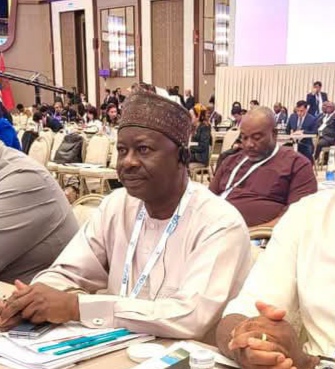
By Our Correspondent
Senator Ibrahim Hassan Dankwambo has reaffirmed Nigeria’s commitment to legislative innovation and social justice as he joins global parliamentarians at the 150th Assembly of the Inter-Parliamentary Union (IPU) in Tashkent, Uzbekistan.
The Assembly, which brings together lawmakers from across the world, is currently holding its General Debate under the theme “Parliamentary Action for Social Development and Justice.” This forum serves as a vital platform for exchanging ideas, strategies, and best practices aimed at tackling global socio-economic challenges.
Senator Dankwambo, representing Gombe North Senatorial District, emphasized the importance of collaborative efforts in strengthening legislative frameworks that address inequality and promote equitable development. He noted that Nigeria stands to benefit significantly by drawing from the diverse experiences of participating countries.
“Attending the 150th IPU Assembly has sharpened our focus on enhancing the legislative process,” Dankwambo said. “Through our active engagement, we aim to craft innovative policies that address pressing social challenges while promoting justice and fairness in our country.”
He also highlighted the significance of adapting successful strategies from other nations to suit Nigeria’s unique socio-political context, saying such exchanges are instrumental in building inclusive and resilient societies.
The Inter-Parliamentary Union, founded in 1889, serves as the global organization of national parliaments and works to promote peace, democracy, and sustainable development through dialogue and parliamentary diplomacy.
Dankwambo’s participation underscores Nigeria’s proactive stance in shaping global legislative conversations and fostering partnerships that drive meaningful change at home and abroad.
-

 Leadership12 months ago
Leadership12 months agoBreaking: African Union Appoints Pantami as Co-Chair of the 4th Industrial Revolution Policy Council
-

 Politics1 year ago
Politics1 year agoFormer Gombe State APC Promoters Forum Chairman Attacked Following Political Commentary
-

 Appointment10 months ago
Appointment10 months agoGombe State Indigene, Appointed New Vice Chancellor (ATBU)
-
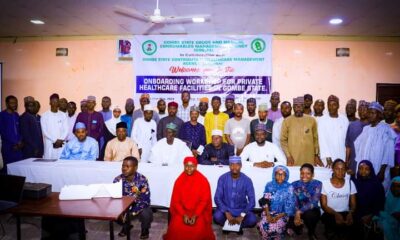
 Health1 year ago
Health1 year agoGombe State Organizes Onboarding Workshop for Private Healthcare Facilities
-
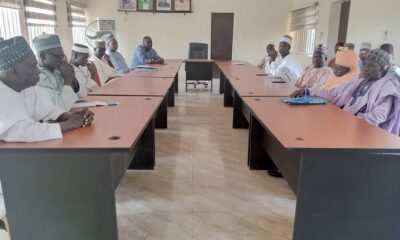
 Water1 year ago
Water1 year agoGombe Government Mobilizes Stakeholders to Combat Illegal Water Connections
-
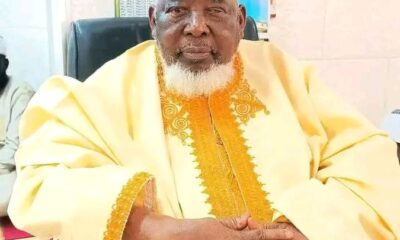
 Death5 months ago
Death5 months agoProminent Nigerian Islamic Scholar, Sheikh Sa’idu Hassan Jingir, Passes Away
-
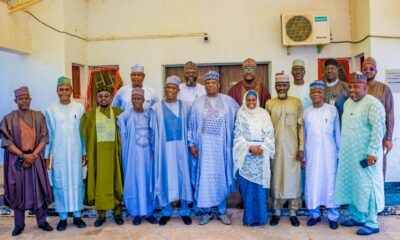
 Politics1 year ago
Politics1 year agoGombe State Inaugurates Human Capital Development Council
-
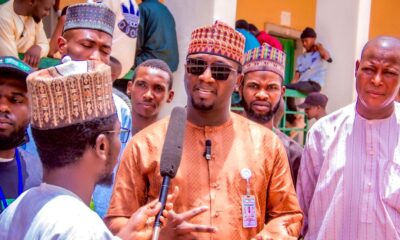
 Politics1 year ago
Politics1 year agoGombe State Launches Presidential Palliative Program (PPP) to Aid Small Businesses
